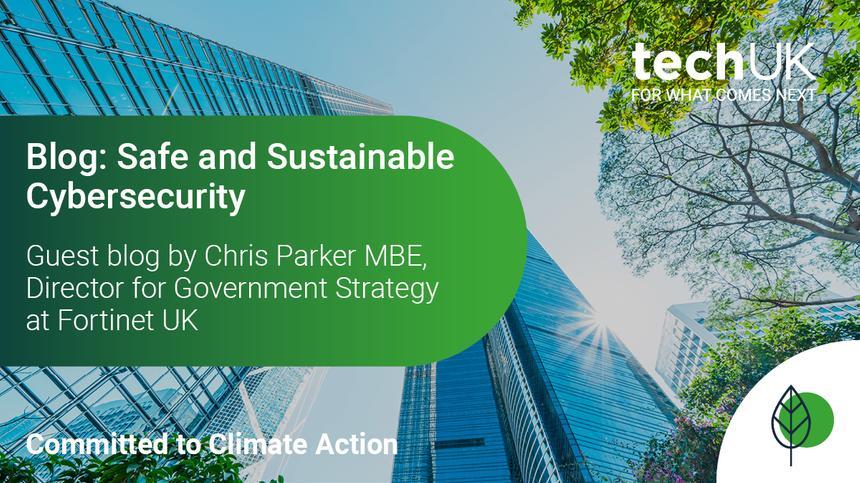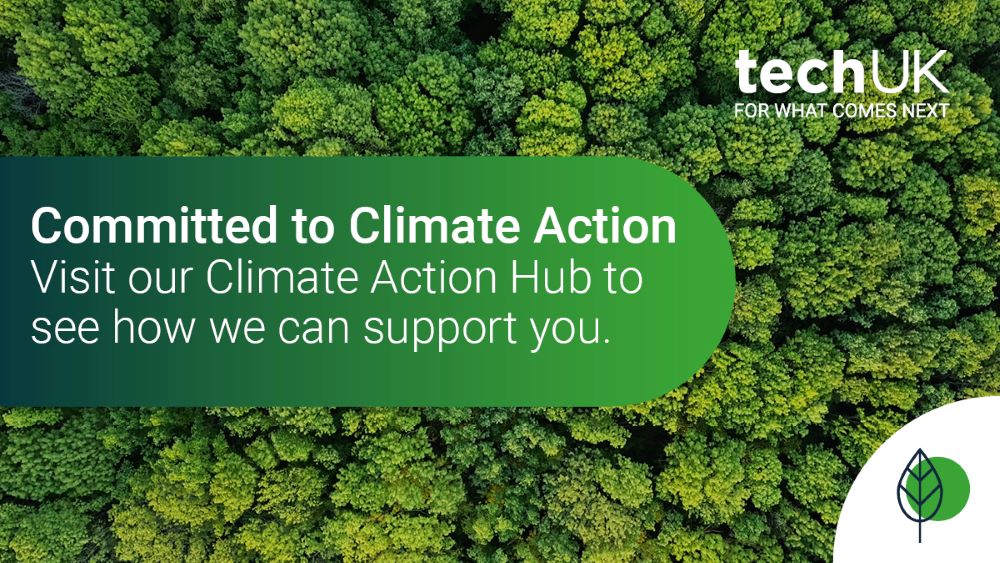Safe and Sustainable Cybersecurity (Guest blog by Fortinet UK)
It is important for any industry to always match the needs of the market it serves. With cybersecurity now a critical part of the IT sector, our core focus remains on threats and ensuring survivability. However, given recent climate events, the global IT market is now experiencing justifiable interests about sustainability. Investors and customers demand lower carbon footprints and sustainability is now a key requirement in the IT business landscape. This decade will see yet more focus on sustainability, so what can the IT and cybersecurity sectors do to help this global challenge?

To identify the factors, we must study the data. There are many data sets available but there is broad acceptance that the IT sector uses almost 10% of global electricity. With increasing digitisation of everything in society from transport to education and from government services to shopping, this is set to grow. Research estimates that by 2025, the IT industry could use 20% of all global electricity produced and emit up to 5.5% of the world’s carbon emissions. That’s more than most countries’ total emissions bar China, India and the US. The WEF Global Risks Report 2022 says a survey of global experts placed ‘climate change failure’ as the number one risk in the next ten years. Sustainability is not going away soon.
So, what can you and I do ourselves? One UK study recently by Ovo Energy found that if we were all to send one fewer email per day, it would lead to a total annual reduction of 16,433 metric tons CO2e – the equivalent of 81,152 flights between London Heathrow and Madrid. To send less emails is not easy to as we all need to work and communicate. However, a recent focus on ‘surplus’ or ‘unnecessary’ emails was interesting: we all do it, the polite reply. A simple thanks or even ‘LOL’ when added together forms a staggering amount of UK traffic. All of us see a wide circulated document copy attachment when a secure shared-folder-type link could be used with far less data being used up by systems. So, there is one aspect we can all do – discuss in our teams and communities about reducing these ‘extra’ emails and by extension to ask families and friends consider the widely forwarded clips and pictures on social media. If anyone is to evangelise and change culture, surely it should be our industry as the ‘guardians of data’?
Finally, what about the industry? The first thing to say is that brilliant IT and OT breakthrough technology is of course saving energy by driving efficiency in controls and monitoring; we see this with domestic smart meters and home management systems. But what about our sector? Most large companies have a climate change policy and sustainability pledges. This is good to see but the walk is often harder. At Fortinet we are proud of our strong actions on sustainability.
Years of dedicated innovation has allowed Fortinet to integrate multiple security and networking functions into a single appliance, saving on energy, space and cooling. As a result, Fortinet’s FortiGate security appliances provide its customers with power consumption that is 3 to 16 times lower than its competitors’ solutions and unequalled product environmental sustainability impact.
Fortinet invests in renewable electricity and sustainable projects. All of Fortinet’s owned facilities around the world run on 100% renewable electricity. Furthermore, Fortinet's recent headquarters expansion in California USA is a state-of-the-art 172,000-square-foot and LEED-Gold certified. This all electric, net-zero facility has implemented multiple energy efficiency measures including solar panels and radiant cooling, which uses 30% less energy than a standard building and conserves 76,800 gallons of water annually.
In conclusion, sustainability merits attention now in our workplace and homes. A culture change is needed so we should play our part in the cybersecurity profession. From our own individual and team actions to acting as major industry players we can all ensure our part in making the world a safer place from not only cyber threats but also from climate change.
Read more about how Fortinet are respecting the environment.
Author: Chris Parker MBE - Director for Government Strategy at Fortinet UK
techUK - Committed to Climate Action
Visit our Climate Action Hub to learn more or to register for regular updates.
By 2030, digital technology can cut global emissions by 15%. Cloud computing, 5G, AI and IoT have the potential to support dramatic reductions in carbon emissions in sectors such as transport, agriculture, and manufacturing. techUK is working to foster the right policy framework and leadership so we can all play our part. For more information on how techUK can support you, please visit our Climate Action Hub and click ‘contact us’.


